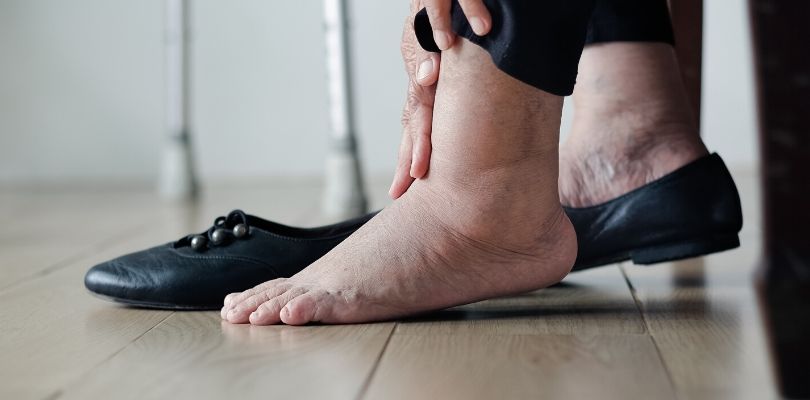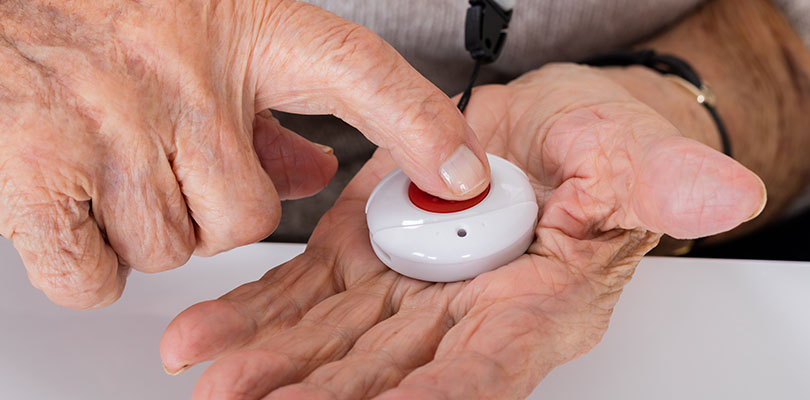Facts About Hereditary Angiodema
Are you experiencing swelling in single or multiple areas of your body? Does it last for a few days and then disappear? If so, there may be a chance you are experiencing hereditary angioedema.
What is Hereditary Angioedema?
According to NIH, “Hereditary angioedema is a disorder characterized by recurrent episodes of severe swelling (angioedema).”
Stress or trauma can trigger an attack, however, the swelling itself does not often have an identifiable trigger. Most have their first episode during either childhood or adolescence. After puberty, the frequency of the episodes often increases. The attacks can affect a single area of the body or multiple areas at once. Most of the attacks last anywhere from two to four days.
Symptoms of Hereditary Angioedema
The symptoms of hereditary angioedema usually occur in three parts of the body. The first main part of the body it may appear on is the skin.
The most common areas for swelling on the skin are on the face (near lips, eyes, etc.), arms, legs and buttocks or genitals. Skin swelling can cause pain and discomfort, however it is usually temporary and not dangerous.
Symptoms from hereditary angioedema can also show themselves in the gastrointestinal system. Swelling can occur in areas such as your bladder, urethra, stomach and the intestines. This can cause a variety of different symptoms including, diarrhea, nausea, vomiting and abdominal pain.
There is also a chance that you may develop swelling in your upper airways, such as the larynx and tongue. When swelling occurs here it can be dangerous because it can obstruct your airways. However, most of these attacks that occur here end up being resolved before they are able to fully obstruct your airways. If you feel that you may be experiencing swelling in your airways, you should seek immediate medical attention.
The frequency of attacks and their location in the body can vary from person to person. The severity of the attacks can also vary. While the episodes often persist throughout one’s life, the frequency can be reduced
Causes of Hereditary Angioedema
There are multiple different types of hereditary angioedema. The different types of hereditary angioedema are caused by different things.
According to NIH, “Types I and II are caused by mutations in the C1NH gene (also called the SERPING1 gene), which provides instructions for making the C1 inhibitor protein. Type I is due to deficiency of C1 inhibitor and type II is due to dysfunction of C1 inhibitor.”
However, not every person with the SERPING1 develops hereditary angioedema. Unlike the previous two types of hereditary angioedema, the third type of hereditary angioedema usually has its onset in adulthood.
Stop settling for the average, boring stress busters that have become the norm in your life. Consider these six unusual ways to de-stress.
Treatment for Hereditary Angioedema
While there is no cure for hereditary angioedema, the symptoms can be combatted via medication. These medications often help reduce the frequency of attacks. Hereditary angioedema is often treated through medications and sometimes oxygen or IV fluids may be used to help treat your symptoms as well.
According to WebMD, some of the medications you may be given include:
- C1 Esterase Inhibitor (Berinert, Cinryze)
- Conestat alfa (Rhucin, Ruconest)
- Ecallantide (Kalbitor)
- Icatibant (Firazyr)
- Lanadelumab (Takhzyro, SHP643)
There are also some things you can do on your own to help potentially reduce the frequency of attacks as well. One of these is keeping track of your triggers. This can help you prevent episodes from occurring in the future. While it is not always possible to prevent episodes, identifying your triggers can help reduce the number of episodes you may experience by telling you what situations or circumstances you should avoid.
One of the best ways of identifying triggers is by keeping a journal of the symptoms you are experiencing. Make sure it is detailed and includes your symptoms as well as any events leading up to the episode that may have triggered it. Over time you may notice patterns and you can use these patterns to help identify your triggers. It is also useful for your doctors as well, so they can keep track of your progress over time.
Keep in mind that sometimes new prescription medications can also act as a trigger for hereditary angioedema, so it is important to discuss how it may (or may not) relate to your hereditary angioedema with your doctor.
It is also important to remember that if you feel swelling in your throat or airways you should seek emergency medical attention.
Living with Hereditary Angioedema
Hereditary angioedema is not a debilitating illness. With proper treatment, you can reduce the frequency of episodes and you can also learn to identify your triggers by keeping a journal to further decrease the likelihood of experiencing an episode. If you think you may be experiencing these symptoms and you find it impacting your day to day activities or if you start to experience swelling in your airways, it is important to seek help from a medical professional.







